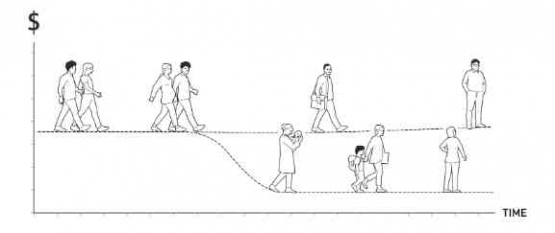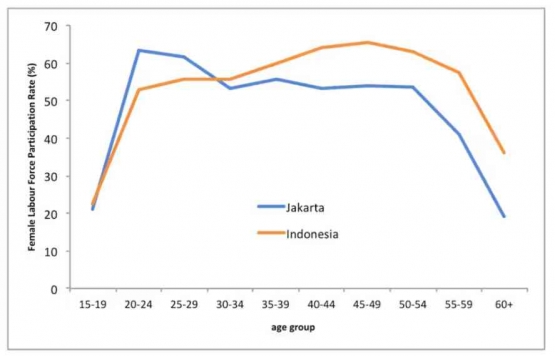Dear diary...
It's tough.
Living in one of Jakarta's satellite cities, 24 hours a day is still not enough.
I get up before the sun comes up, making multiple journeys throughout the day, including going food shopping, and dropping Canti and Rakai to school. Then I load myself into a crowded commuter line to go to work, enduring Jakarta's legendary traffic congestion and long commutes.
It is not a secret for married women with young children that long commutes forces them to have to give up time at home in order to enter the workforce. At the same time, it also increases the opportunity cost for them to pursue careers.
Claudia Goldin's research on the "parenthood effect" sheds light on this dilemma by examining how modern labour markets often place women at a disadvantage because they demand flexibility from workers. Women are still frequently seen as the primary caregivers, potentially limiting their ability to aim for higher-paying roles. Balancing these demands with employment can be especially challenging, as the partner (typically the woman) who reduces work hours often faces reduced professional growth opportunities. These limitations have a major impact on women's earnings and career paths, indicated by the declines in women's income following childbirth as we can see in Figure 2.
Figure 2. The Parenthood Effect Curve

Where I'm living, I frequently witness real cases. As seen in Figure 3, the female labour force participation rate in Indonesia, which tends to drop significantly once women have birth, especially in Jakarta.
Figure 3. Female Labour Participation Rate in Jakarta and Indonesia, 2018












